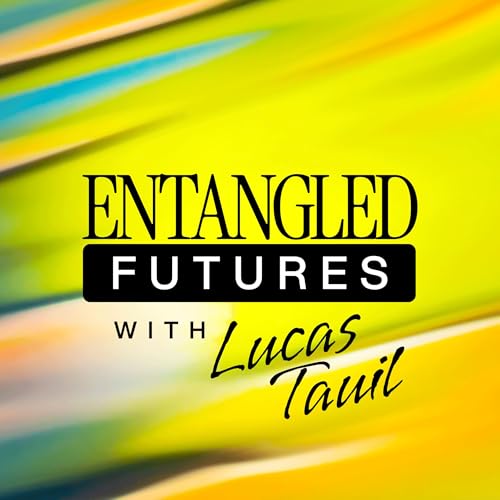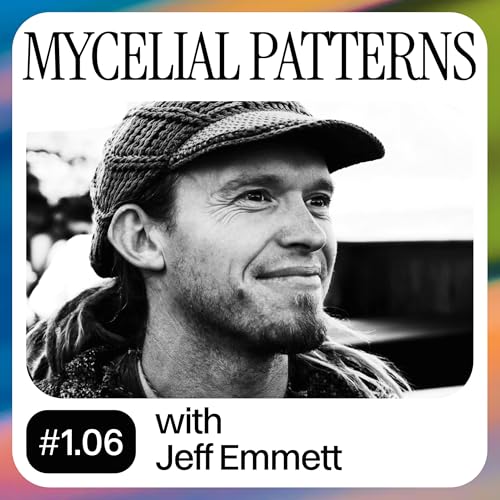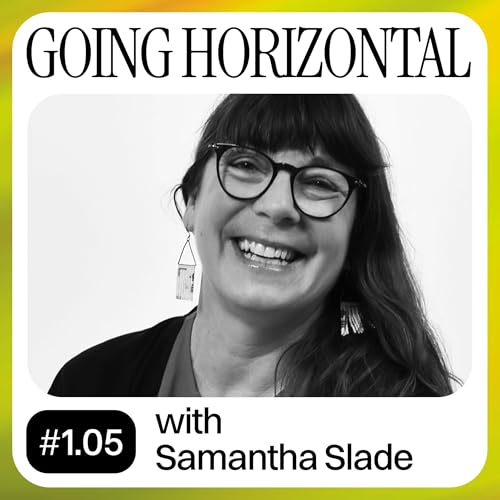
Entangled Futures
カートのアイテムが多すぎます
カートに追加できませんでした。
ウィッシュリストに追加できませんでした。
ほしい物リストの削除に失敗しました。
ポッドキャストのフォローに失敗しました
ポッドキャストのフォロー解除に失敗しました
-
ナレーター:
-
著者:
-
Lucas Tauil
このコンテンツについて
Conversations towards a world that work for everyone
About us
Entangled Futures is a podcast exploring the world of mutuality, produced by Lucas Tauil.
Engaging in conversation with the people shaping collective spaces, we aim to identify adjacent possibilities— new opportunities for collaboration and innovation—that nourish a planet where everyone can thrive.
This work is the result of the excellence and dedication of an amazing team: Ira Nezhynska led the design, Kika created the music, Clara Chemin was the narrator, Paul d'Aoust developed the website, Mamading Ceesay handled the infrastructure, Matthew Nichols took care of integration and Jonathan Patecki edited the animations.
Come together! Help us bring the next season to life. You can support the show with a credit card on our Patreon page, (https://patreon.com/EntangledFutures) or with crypto using the Ethereum wallet, ENS: entangledfutures.eth.
0x24055dB18b971f24C3BFAB623A24Ee6c2b04F921
Sponsored by
The show is brought to you by the Holochain Foundation. Holochain is creating technology that helps people team up, share information, and solve their own problems together—without needing a middle-man. Creating carriers that cannot be captured, Holochain enables privacy and holds space for innovation and mutuality.
Host
Lucas Tauil is a trained, and seasoned communicator focused on participative culture and collaboration. Connected to the world of sustainability and decentralised technology he has worked as a Journalist for two decades in mainstream media.
Working with the power of difference and collective intelligence on multiple stakeholders organisations since 2001, Lucas is part of Enspiral, a collective of people working on stuff that matters.
Together with his partner Sandra Chemin and eight other families, Lucas co-founded Quintal Magico, a communitarian Steiner school in Paraty, Brazil. The couple sailed for six years with their two daughters from England to New Zealand.
©2025 Lucas Tauil-
 1 時間 5 分
1 時間 5 分カートのアイテムが多すぎます
ご購入は五十タイトルがカートに入っている場合のみです。カートに追加できませんでした。
しばらく経ってから再度お試しください。ウィッシュリストに追加できませんでした。
しばらく経ってから再度お試しください。ほしい物リストの削除に失敗しました。
しばらく経ってから再度お試しください。ポッドキャストのフォローに失敗しました
ポッドキャストのフォロー解除に失敗しました
-
 1 時間 15 分
1 時間 15 分カートのアイテムが多すぎます
ご購入は五十タイトルがカートに入っている場合のみです。カートに追加できませんでした。
しばらく経ってから再度お試しください。ウィッシュリストに追加できませんでした。
しばらく経ってから再度お試しください。ほしい物リストの削除に失敗しました。
しばらく経ってから再度お試しください。ポッドキャストのフォローに失敗しました
ポッドキャストのフォロー解除に失敗しました
-
 52 分
52 分カートのアイテムが多すぎます
ご購入は五十タイトルがカートに入っている場合のみです。カートに追加できませんでした。
しばらく経ってから再度お試しください。ウィッシュリストに追加できませんでした。
しばらく経ってから再度お試しください。ほしい物リストの削除に失敗しました。
しばらく経ってから再度お試しください。ポッドキャストのフォローに失敗しました
ポッドキャストのフォロー解除に失敗しました


